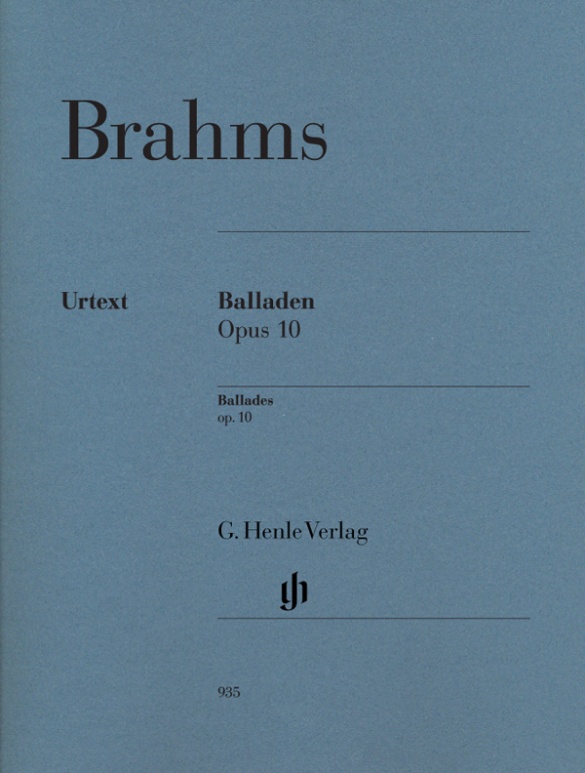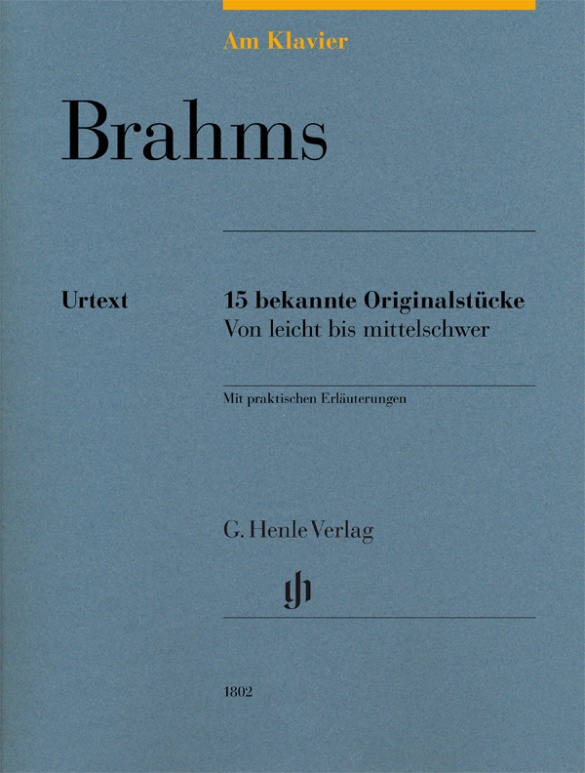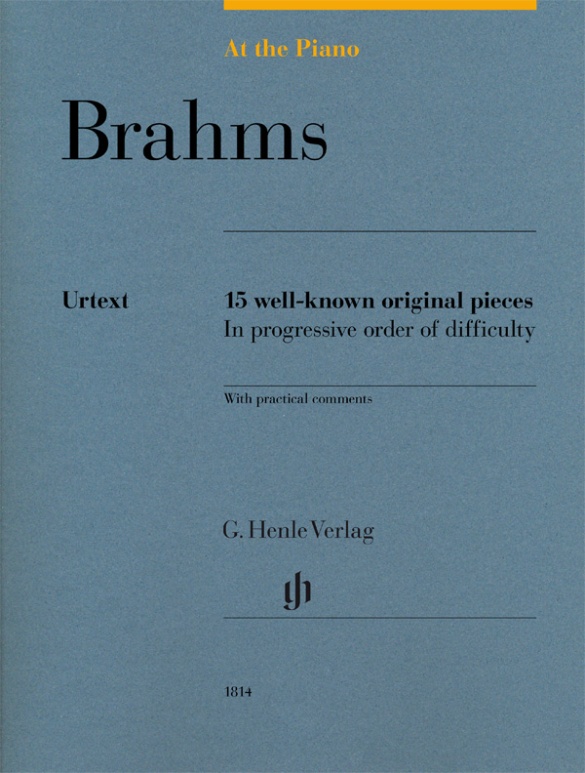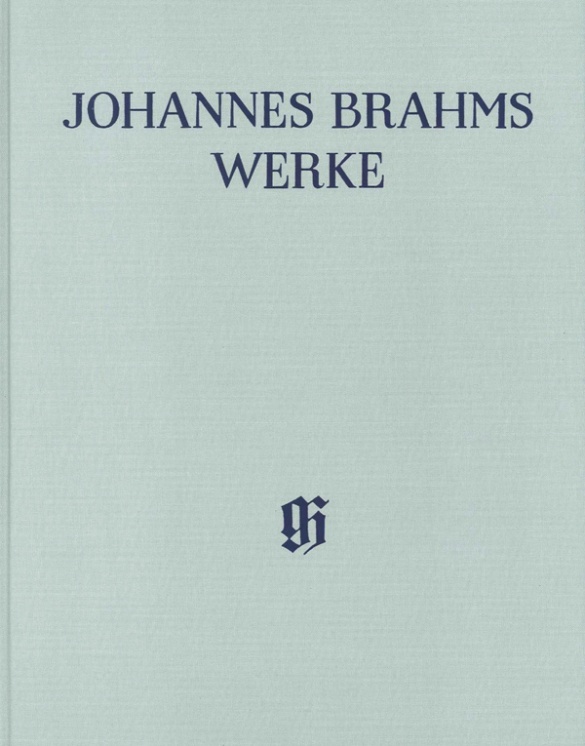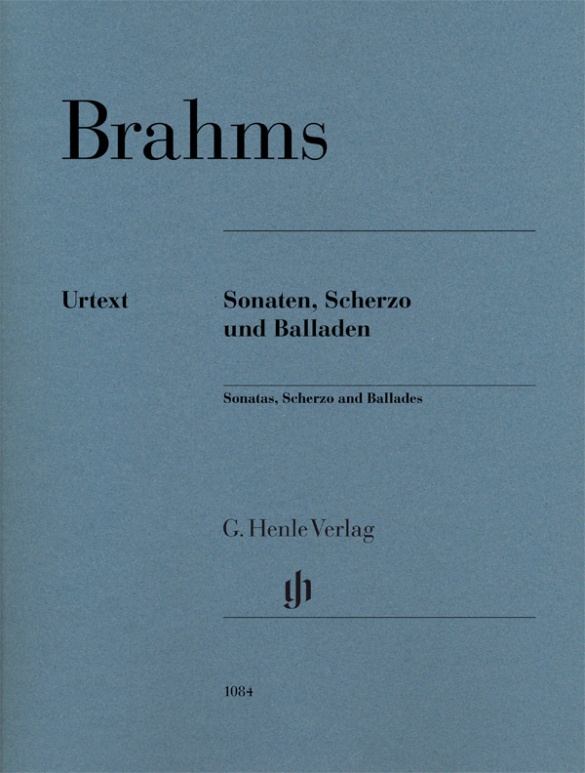

Johannes Brahms
Sonatas, Scherzo and Ballades
With opuses 1, 2, 4, 5, and 10, this volume contains virtually all of Johannes Brahms’ early piano oeuvre, with which the budding composer and pianist introduced himself to the public. The Scherzo op. 4 from 1851 stands alongside the sonatas composed between 1851–53 as a substantial single movement that particularly delighted Robert Schumann, leading him to direct the public’s special attention to his young colleague in his famous article “New Paths” in 1853. Written the following year, the Four Ballades op. 10 complete the volume. Already they strike a new, more Romantic note that Brahms described to Clara Schumann thus: “They are not very difficult, and even less difficult to understand”. This Urtext edition offers a revision of the musical text based on the new Brahms Complete Edition, with an extensive preface by editor Katrin Eich.
mws-henle.cms.title-works.headline
mws-henle.cms-product-detail.composer-headline

Johannes Brahms
His significant output comprises chamber music, piano works, numerous choral compositions and songs (including settings of folk-song lyrics), as well as large-scale orchestral works in the 1870s and 1880s. His compositions are characterized by the process of developing variation. He is considered an antithesis to the New German School around Liszt, and an advocate of “absolute” music.
| 1833 | Born in Hamburg on May 7, the son of a musician. His first piano instruction with Willibald Cossel at age seven, then with Eduard Marxen; first public performances from 1843. |
| 1853 | Concert tour through German cities; he meets Schumann, who announces him as the next great composer in his essay “Neue Bahnen” (“New Paths”). A lifelong, intimate friendship develops with Clara Schumann. |
| 1854–57 | Piano Concerto No. 1 in D minor, Op. 15. |
| 1857–59 | Choir director, pianist, and teacher at the royal court in Detmold. |
| 1859–61 | Director of the Hamburg Women’s Choir. |
| 1860 | Manifesto against the New Germans around Liszt. |
| 1863 | Cantata “Rinaldo,” Op. 50. |
| 1863–64 | Director of the Wiener Singakademie. |
| 1868 | Partial performance in Vienna of “A German Requiem,” Op. 45 (the complete work premiered in Leipzig in 1869) |
| 1871–74 | Artistic director of the Gesellschaft der Musikfreunde (Society of Friends of Music) in Vienna. |
| 1873 | Haydn Variations, Op. 56a, for orchestra. |
| from 1877 | His symphonic output begins with the Symphony No. 1 in C minor, Op. 68 (begun 1862); composition of the Symphony No. 2 in D major, Op. 73; the Symphony No. 3 in F major, Op. 90 (1883); and Symphony No. 4 in E minor, Op. 98 (1884–85): cantabile themes, chamber-music-like style. |
| from 1878 | Travels in Italy. |
| 1878 | Violin Concerto in D major, Op. 77, for Joseph Joachim. |
| 1881 | Piano Concerto No. 2 in B-flat major, Op. 83, with a scherzo movement. |
| 1886 | Honorary president of Vienna’s Tonkünstlerverein (Association of Musicians). |
| 1897 | Four Serious Songs, Op. 121. Dies in Vienna on April 3. |
mws-henle.cms-product-detail.author-headline
Andreas Boyde (mws-henle.person.role.FINGERSATZ)
Andreas Boyde, was born in 1967 in Oschatz/Saxony and studied the piano in Dresden and London. He has appeared as a soloist with renowned orchestras such as the London Philharmonic Orchestra, the Sächsische Staatskapelle Dresden, the Malaysian Philharmonic Orchestra, the Prague Radio Orchestra, the Auckland Philharmonia Orchestra, the Bamberg Symphony Orchestra, the Hallé Orchestra Manchester, the Bolshoi Symphony Orchestra and the London Mozart Players.
Boyde’s repertoire comprises key works from all periods, also including contemporary composers such as Paul Schoenfield and John Pickard. Boyde has recorded Brahms’s complete solo piano works with OehmsClassics, a co-production with the WDR.
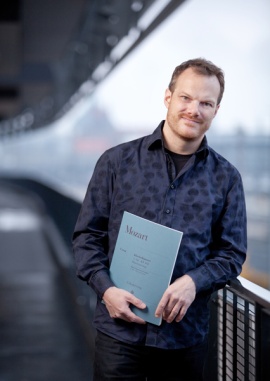
Lars Vogt (mws-henle.person.role.FINGERSATZ)
Product Safety Informations (GPSR)

G. Henle Verlag
Here you can find the information about the manufacturer of the product.G. Henle Verlag e.K.
Forstenrieder Allee 122
81476 München
Germany
info@henle.de
www.henle.com
推荐
autogenerated_cross_selling
本书目其他版本
本书目其他版本


